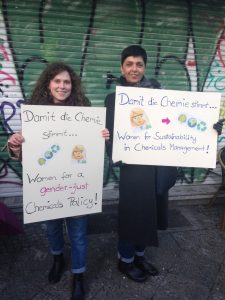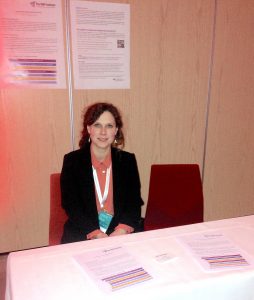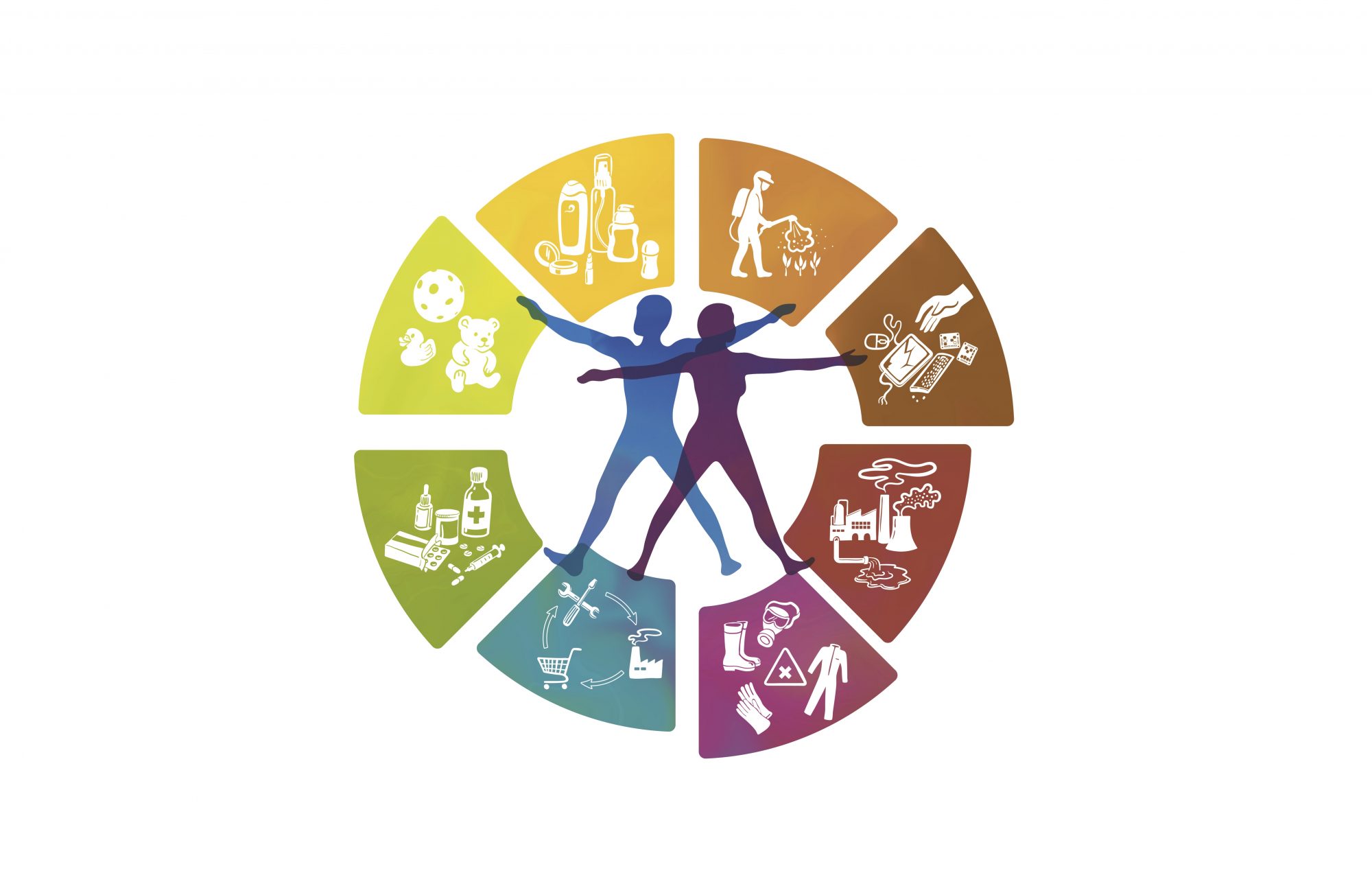Gender and SAICM Beyond 2020 – An Occasional Newsletter
The 2nd Intersessional Meeting of the SAICM Beyond 2020 process took place March 13-15, 2018 in Stockholm, Sweden. Anna Holthaus of the MSP Institute was there, working to increase attention on gender and chemicals issues, providing information and suggestions on how to integrate gender in a future policy framework on chemicals and waste.
SAICM Beyond 2020:
Adopted by the First International Conference on Chemicals Management (ICCM1) on 6 February 2006 in Dubai, the Strategic Approach to International Chemicals Management (SAICM) is a policy framework to promote chemical safety around the world. It is a multi-stakeholder and multi-sectoral platform with a Secretariat at UNEP’s Chemicals and Waste Branch in Geneva.
SAICMs overall objective “is the achievement of the sound management of chemicals throughout their life cycle so that by the year 2020, chemicals are produced and used in ways that minimize significant adverse impacts on the environment and human health”.
At the moment, there is an intersessional processconsidering achievements so far and preparing a possible future platform for the sound management of chemicals and waste beyond 2020.
Gender & chemicals:
There is a number of gender aspects relevant to chemicals and chemicals and waste management:

- Gender, as a social category, is linked to gender-specific norms of behaviour, roles in society as well as the development of ‘feminine’ and ‘masculine’ identities, which in turn influence people’s behaviour, including their impact on the environment, their ffectedness by environmental degradation, and their access to and power over resources.
- Gender (or sex), as a biological category, shows that women’s and men’s bodies are affected differently by environmental and physical conditions such as temperature, food, or chemicals.
- Gender analysis allows to ask questions that help us understand and unpack root causes of unsustainable behaviour and societies, and hence have a transformational potential. We need to tap into this potential in order to bring about sustainable development, justice and peace.
Before the 2nd Intersessional Meeting, the gender and chemicals project team – Minu and Anna – , started to raise awareness on gender and chemicals – via email, blog articles, on twitter and LinkedIn and even in the very traditional way of marching in the streets by joing the demonstration at the international women’s day on 8th March in Berlin, Germany.

We brought our flyers, posters and policy suggestions to Stockholm and discussed our ideas with a many different stakeholders from governments, NGOs, IGOs and industry. We felt that there is definitely interest in the issue: nearly all of our flyers and information materials was taken and we heard a lot of supportive comments in direct conversations. On the other hand, we noticed that there are gaps in knowledge about gender, its definition and its transformational potential, although the paper on gender prepared by the SAICM secretariat is a very good starting point for the basic understanding of gender and its complex interconnections to chemicals and waste.
The plenary sessions started and ended with strong statements on the importance of gender equality, e.g. by the Asia-Pacific Region and the NGO Togo Welfare on behalf of IPEN. But in between, there was not much attention being paid to gender. During discussions on the future vision, policy principles, objectives & milestones, implementation and governance, not many colleagues mentioned women’s or gender issues.
In general, there is still a way to go to develop a shared understanding of how a future framework will look like (see ENB). Chronical problems of underfunding and very little visibility and political attention also don’t help taking a integrative and mainstreaming approach.
Yet one thing is clear: for healthy people and a healthy planet we need a gender-just chemicals and waste policies! Gender has to be mainstreamed in all principles and strategic objectives, a Gender Focal point should be created and a Gender Action Plan be developed.
There is not much time left until 2020 – let’s integrate gender now!
Next stepping stones for the SAICM Beyond 2020 process include meetings at the global and regional level; many countries also hold national level meetings and stakeholder workshops. Upcoming international meetings include:
- OEWG – February 2019*
- 3rd Intersessional – June 2019*
- Regional Meetings*
*Dates to be confirmed
We will continue to advocate for these and other ways of integrating gender and share information, ideas, events and policy suggestions with you – and we are always keen to hear from you about your work and your ideas on gender and chemicals!
Thank you and best regards,
Anna and Minu from the MSP Institute and the Gender & Chemicals Project
PS: If you want to join our mailing list for more Occasional Newsletters in the future, just let us know: info(at)msp-institute.org
